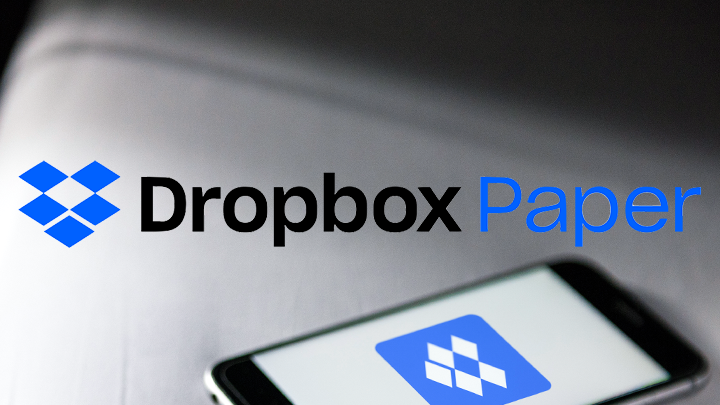The pandemic is causing major shifts in almost every foundation of our country. But, none can be compared (except for our economy) to the abrupt transitions that the Education sector had to face. Teachers and students are facing plenty of challenges, and one of the solutions is to go digital. For example, turning your computer or phone into additional resources for learning, like, let’s say perhaps an easier option for taking down notes?

Digitally taking notes via Apps have been around for a while. But, none of them have been as popular as they are now. In fact, when writing down quick notes and reminders, people often reach for their smartphone instead of a piece of paper. And, while physically writing notes has its own advantages, we can’t deny the convenience granted by its digital counterpart. Imagine all the time and effort saved from rummaging page after page of quickly jotted down lines versus inputting a quick keyword in a search bar or placing an actual image versus drawing one hastily. With that in mind, the question you should really be asking is: Which app should I be using? Well, let’s take a look into the Top 5 best note-taking Apps and see which one fits you the best.

Table of Contents
Undeniably, the best and oldest of the bunch – and for a good reason – is Evernote. With its ability to encapsulate a vast amount of information in a very organized and easy to use interface, there is no doubt why this App is on top of the list. It lets you take notes in various formats and allows the same notes to be quickly organized and found via tags and shortcuts. Anything from checklists to website pages (downloaded for offline viewing via Web Clipper) can be compiled into virtual notebooks and accessed with a few clicks or via voice command through Evernote’s new Siri Integration feature.
The only downside is that the free plan comes with minimal features. To get the most of Evernote, you either have to pay for an individual plan or get a few more people to pitch in for a business plan, which is respectively priced at $7.99PHP 469INR 677EUR 8CNY 58/month (approx. 387 PHP) and $14.99PHP 880INR 1,270EUR 14CNY 109/month (approx. 726 PHP). Both plans allow for integrations with Slack, Outlook, Google Drive, Microsoft Teams, and Salesforce.

Looking for an all-around App that takes note-taking to next-level productivity? Well, look no further. Microsoft OneNote is easily one of the most dependable Apps out there for note-taking, annotating, and even sketching. Its free-form information gathering build makes just about anything and everything easy to encase in a single document. You can opt to type, write (via a stylus), clip a whole web page, or even annotate over photos and PDFs. And if that isn’t enough, it has also created an easy-to-use interface and even easier to organize as it approaches its interface similar to that of a three-ring binder notebook. You can color-code sections, create custom labels and tags, and even highlight important lines for easier navigation as well. Additionally, it integrates seamlessly with other Microsoft Office Suite Apps like Word, Excel, and Powerpoint. And if that wasn’t enough, it’s also free to use for both Android, Windows, and Apple users.
The only thing that might hinder you from downloading this productivity powerhouse is if you’re not subscribed to Microsoft 365. While amazing on its own, you won’t maximize its features if you’re using any other productivity suite since it plays the best with other Microsoft Apps.

If you’re deeply rooted in the Apple ecosystem, then you’re probably more likely to want an App that integrates seamlessly with your Mac’s clean and friendly interface. Luckily, Ulysses does exactly that. In fact, it’s touted as the most polished note-taking app for Apple devices, and rightfully so. Not only does it create a platform for easier note-taking – especially for long lectures – but it also automatically saves and syncs all your notes and documents on iCloud. Additionally, it also comes with minute features that you otherwise would have never thought you needed, such as embedding images via links and accessing their thumbnails through a double click, non-conspicuous sidebars that format and display the details of your document, and quick themes that can turn your notes from plain text to more presentable versions.
As with all great things, Ulysses comes with a price. While not as expensive as Evernote, it does separate certain features for add-on payments on top of its monthly subscription of $4.99PHP 293INR 423EUR 5CNY 36/month (approx. 242 PHP). You can also opt for an annual subscription, which is priced at $39.99PHP 2,347INR 3,389EUR 38CNY 291/month (approx. 1,936 PHP)

If you have problems managing group projects virtually, then Dropbox Paper could be the solution for you.
Dropbox launched this note-taking app to create a platform where your notes can easily be shared or edited by your group or class. It allows multiple people to share ideas, images, and videos for easier remote teamwork and has integrations with other productivity apps such as Google Calendar and Slack. Additionally, it features a mobile feature that lets you create, delete, and archive folders on the go.
Fortunately, Dropbox Paper and all its features are free to use. But, if you’re using Google Drive, you’ll find it harder to manage or navigate as it pairs the best with Dropbox itself.

If you’re like many who don’t like writing lengthy notes or are just transitioning to digital notes and looking for a very easy-to-use App, then Google Keep should more than suffice. This free to use and built-in (for Android smartphones) App can make anything from textual information to photos easy to store and file. In fact, it’s voice memo integration allows automatic transcription of live audio (imagine using that on your next lecture.) It also boasts a fun and convenient sticky note interface with features like pinned notes, reminder alarms, and quick Google Doc copies (you can transfer your note to a Google Doc format and have it saved in your Google Drive).
While it makes for a very intuitive note-taking app, it might not be the best for lectures that require a lot of actual note-taking since it may be harder to format your document than those aforementioned—unless transferred to Google Docs. It’s best used for on-the-go mobile writing, quick checklists and notes, and reminders.
While physically writing down notes has its own merit incomparable to note-taking apps, it’s important to highlight that there is a great deal of productivity achieved with the latter’s ease and convenience. There is much to be said for working hard versus working smart, and these note-taking apps might be a perfect avenue of adapting to the digital world with reduced effort and time. Just imagine the absence of hand cramps, the awkwardness of asking your professor to repeat a line over and over again, or even the paper wasted in making notes that you’ll probably only look at once.

YugaTech.com is the largest and longest-running technology site in the Philippines. Originally established in October 2002, the site was transformed into a full-fledged technology platform in 2005.
How to transfer, withdraw money from PayPal to GCash
Prices of Starlink satellite in the Philippines
Install Google GBox to Huawei smartphones
Pag-IBIG MP2 online application
How to check PhilHealth contributions online
How to find your SIM card serial number
Globe, PLDT, Converge, Sky: Unli fiber internet plans compared
10 biggest games in the Google Play Store
LTO periodic medical exam for 10-year licenses
Netflix codes to unlock hidden TV shows, movies
Apple, Asus, Cherry Mobile, Huawei, LG, Nokia, Oppo, Samsung, Sony, Vivo, Xiaomi, Lenovo, Infinix Mobile, Pocophone, Honor, iPhone, OnePlus, Tecno, Realme, HTC, Gionee, Kata, IQ00, Redmi, Razer, CloudFone, Motorola, Panasonic, TCL, Wiko
Best Android smartphones between PHP 20,000 - 25,000
Smartphones under PHP 10,000 in the Philippines
Smartphones under PHP 12K Philippines
Best smartphones for kids under PHP 7,000
Smartphones under PHP 15,000 in the Philippines
Best Android smartphones between PHP 15,000 - 20,000
Smartphones under PHP 20,000 in the Philippines
Most affordable 5G phones in the Philippines under PHP 20K
5G smartphones in the Philippines under PHP 16K
Smartphone pricelist Philippines 2024
Smartphone pricelist Philippines 2023
Smartphone pricelist Philippines 2022
Smartphone pricelist Philippines 2021
Smartphone pricelist Philippines 2020